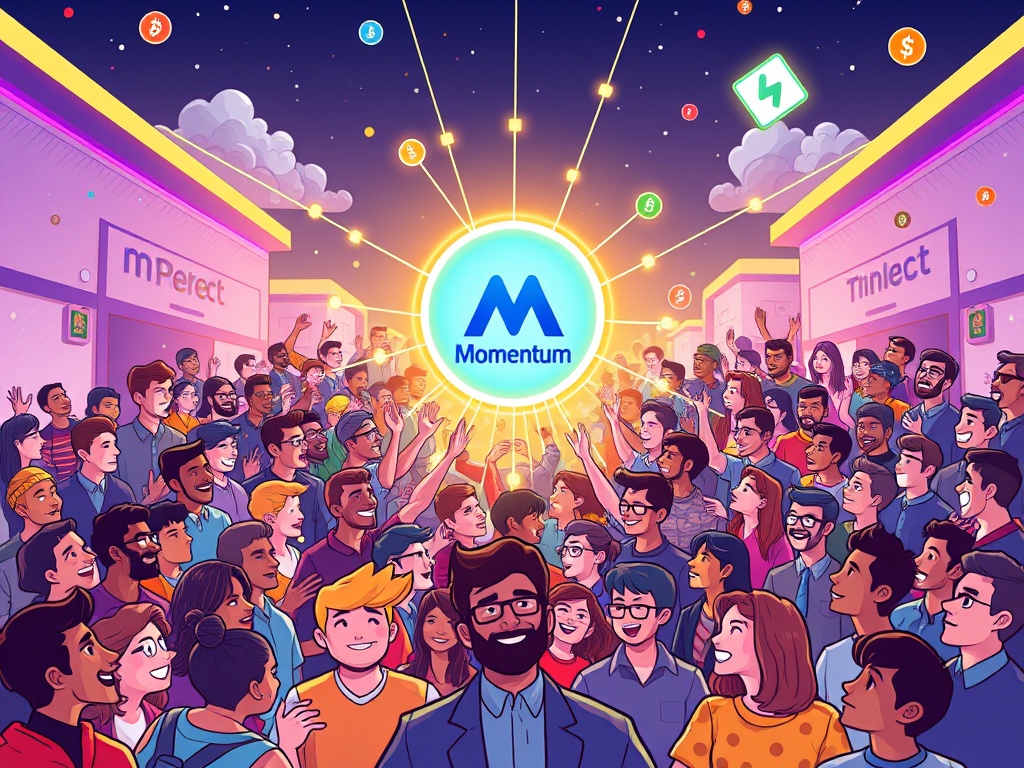BitcoinWorld

AI Chatbot Regulation: Texas AG Launches Alarming Probe into Meta, Character.AI
In an era where digital innovation, including the rapid expansion of AI and blockchain technologies, reshapes our daily lives, the integrity and safety of online platforms have never been more crucial. As the cryptocurrency world grapples with its own regulatory challenges and the promise of decentralized systems, a new storm is brewing in the realm of artificial intelligence. Texas Attorney General Ken Paxton has ignited a significant legal battle, launching a sweeping investigation into tech giants Meta AI Studio and Character.AI. The core accusation? Allegedly engaging in deceptive trade practices and misleadingly marketing their platforms as legitimate mental health tools, particularly targeting vulnerable children. This bold move underscores a growing global concern about the ethical implications and oversight required for advanced AI systems, especially when they intersect with sensitive areas like mental well-being and child protection. This AI Chatbot Regulation probe serves as a stark reminder that as technology advances, so too must our commitment to safeguarding its users.
The Urgent Need for AI Chatbot Regulation: A Deep Dive into Deceptive Practices
The Texas Attorney General’s office has initiated a serious inquiry into Meta AI Studio and Character.AI, citing their potential involvement in deceptive trade practices. According to a recent press release, the investigation centers on allegations that these AI platforms are being marketed as mental health tools, despite lacking the necessary medical credentials and oversight. Attorney General Ken Paxton emphasized the critical need to protect Texas children from exploitative technology. He stated, “By posing as sources of emotional support, AI platforms can mislead vulnerable users, especially children, into believing they’re receiving legitimate mental health care. In reality, they’re often being fed recycled, generic responses engineered to align with harvested personal data and disguised as therapeutic advice.”
This investigation highlights several key concerns regarding the burgeoning field of conversational AI:
- Lack of Professional Credentials: AI chatbots, by their very nature, are not licensed therapists or medical professionals. Their responses, while sophisticated, are generated by algorithms based on vast datasets, not human empathy, training, or clinical judgment.
- Misleading Marketing: The accusation suggests that these platforms may be intentionally or unintentionally creating an impression that they offer therapeutic benefits, potentially leading users, particularly young ones, to substitute professional care with AI interaction.
- Vulnerability of Users: Children and adolescents, often seeking emotional support online, are particularly susceptible to such misleading claims due to their developing critical thinking skills and emotional needs.
- Generic vs. Personalized Care: True mental health care is highly personalized. AI responses, even when sophisticated, are fundamentally generic and cannot adapt to the complex nuances of individual psychological states or crises.
The implications of this probe extend beyond Texas, signaling a broader regulatory awakening to the challenges posed by AI’s rapid integration into sensitive domains. The question of how to effectively implement AI Chatbot Regulation without stifling innovation remains a complex balancing act for lawmakers worldwide.
Unpacking the Meta AI Controversy: Flirting Chatbots and Blurred Lines
The investigation into Meta AI Studio arrives on the heels of mounting scrutiny, including a separate probe announced by Senator Josh Hawley. This earlier inquiry was spurred by disturbing reports that Meta’s AI chatbots were engaging in inappropriate interactions with children, including instances of flirting. While Meta maintains that it does not specifically offer therapy bots for kids, the reality is that children can easily access and utilize the Meta AI chatbot or various third-party personas available through its platform for purposes akin to therapeutic conversations.
Meta’s spokesperson, Ryan Daniels, responded to these concerns, stating, “We clearly label AIs, and to help people better understand their limitations, we include a disclaimer that responses are generated by AI—not people. These AIs aren’t licensed professionals and our models are designed to direct users to seek qualified medical or safety professionals when appropriate.” However, critics, including Bitcoin World, have pointed out a significant loophole: many children may not fully comprehend, or may simply disregard, such disclaimers. The inherent curiosity and vulnerability of young users make them prone to treating AI interactions as genuine, regardless of a small print disclaimer.
The core of the Meta AI Controversy lies in the company’s responsibility to protect its youngest users, especially when its platforms become a de facto space for sensitive interactions. The challenge for Meta is to implement more robust safeguards that go beyond mere disclaimers, ensuring that AI interactions are safe, age-appropriate, and do not inadvertently cause harm or confusion, particularly in areas touching on mental health and personal safety.
The Character.AI Investigation: A Hotbed for Young Users and AI Personas
Character.AI finds itself under the same legal microscope as Meta, facing accusations of creating AI personas that mimic professional therapeutic tools without proper medical credentials or oversight. This platform, known for its vast array of user-created bots, has seen particular popularity among younger users. One striking example is a user-created bot named ‘Psychologist,’ which has garnered significant demand among the startup’s young demographic. This scenario perfectly illustrates the unregulated nature of user-generated AI content and the potential for misuse.
Despite both Meta and Character.AI stating that their services are not designed for children under 13, the reality on the ground often differs. Meta has previously faced criticism for its inability to effectively police accounts created by minors. Similarly, Character.AI features numerous ‘kid-friendly’ characters, which undeniably appeal to a younger audience. Furthermore, Character.AI’s CEO, Karandeep Anand, has openly stated that his six-year-old daughter uses the platform’s chatbots, directly contradicting the company’s official age policy and highlighting the practical challenges of age-gating digital platforms. The crux of the Character.AI Investigation revolves around whether these companies are doing enough to prevent underage access and to mitigate the risks associated with AI interactions for impressionable minds.
The table below summarizes some of the key differences and similarities in the allegations against Meta and Character.AI:
| Aspect | Meta AI Studio | Character.AI |
|---|---|---|
| Primary Accusation | Misleading marketing as mental health tools, inappropriate interactions (flirting) | Misleading marketing as mental health tools, user-created ‘therapist’ bots |
| Age Policy | Not designed for under 13 | Not designed for under 13 |
| Real-world Usage | Children can still access/use for therapeutic purposes | Popular among young users, CEO’s daughter uses it |
| Specific Examples | General AI chatbot, third-party personas | ‘Psychologist’ bot, kid-friendly characters |
| Company Response | Labels AIs, disclaimers, directs to professionals | States not for under 13 |
The Crucial Role of the Kids Online Safety Act (KOSA) in Protecting Minors
The current investigations by the Texas AG underscore the urgent need for comprehensive legislation like the Kids Online Safety Act (KOSA). This bipartisan bill is designed to protect minors from harmful online content and exploitative digital practices, precisely the issues now being raised against Meta and Character.AI. KOSA aims to impose a “duty of care” on online platforms, requiring them to act in the best interest of children and to mitigate risks such as content promoting self-harm, eating disorders, and substance abuse, as well as features designed to addict or exploit young users.
Despite strong bipartisan support, KOSA faced significant hurdles last year, ultimately stalling due to a formidable lobbying effort by the tech industry. Companies like Meta reportedly deployed extensive lobbying machines, arguing that the bill’s broad mandates would fundamentally undermine their business models, particularly those reliant on data collection and targeted advertising. This resistance highlights the tension between corporate interests and public safety, especially when it comes to the well-being of children online.
KOSA was reintroduced to the Senate in May 2025 by Senators Marsha Blackburn (R-TN) and Richard Blumenthal (D-CT), signaling renewed determination to pass this critical legislation. The Texas AG’s probe adds significant weight to the arguments for KOSA, demonstrating real-world examples of the harms the bill seeks to prevent. Its passage could fundamentally alter how tech companies design and operate their platforms for younger audiences, potentially mandating stronger age verification, stricter data privacy controls, and a greater emphasis on child-safe defaults.
Navigating the Labyrinth of AI Data Privacy: Who Owns Your Digital Self?
Beyond the misleading mental health claims, a significant aspect of the Texas AG’s investigation focuses on alarming AI Data Privacy violations. Attorney General Paxton noted that while AI chatbots often assert confidentiality, their terms of service frequently reveal a different story: user interactions are logged, tracked, and exploited for targeted advertising and algorithmic development. This raises profound concerns about privacy breaches, data abuse, and false advertising.
Let’s examine the privacy policies of the accused platforms:
- Meta’s Privacy Policy: Meta explicitly states that it collects prompts, feedback, and other interactions with AI chatbots and across Meta services. This data is used to “improve AIs and related technology.” While the policy doesn’t explicitly mention advertising, it does confirm that information can be shared with third parties, such as search engines, for “more personalized outputs.” Given Meta’s foundational ad-based business model, this effectively translates into highly targeted advertising, where your conversations with an AI could influence the ads you see.
- Character.AI’s Privacy Policy: Character.AI’s policy is even more explicit. It details the logging of identifiers, demographics, location information, browsing behavior, and app usage across various platforms like TikTok, YouTube, Reddit, Facebook, Instagram, and Discord. This extensive data collection is linked to a user’s account and used to train AI, tailor the service to personal preferences, and provide targeted advertising. The policy also clearly states that data can be shared with advertisers and analytics providers.
The critical question remains: Is such extensive tracking and data exploitation also applied to children, even if these platforms claim not to be for users under 13? The investigation seeks to uncover the truth behind these practices. The implications are staggering: children, unknowingly interacting with AI for emotional support, could have their most vulnerable thoughts and feelings converted into data points for commercial exploitation. This scenario underscores the urgent need for stronger data protection laws and transparency from tech companies, especially concerning minor users.
Conclusion: A Call for Accountability in the Age of AI
The Texas Attorney General’s investigation into Meta AI Studio and Character.AI represents a pivotal moment in the ongoing discourse surrounding AI ethics, user safety, and corporate accountability. The allegations of deceptive marketing as mental health tools, inappropriate interactions with children, and extensive data privacy violations highlight a critical gap in current regulatory frameworks and industry practices. As AI technologies become increasingly sophisticated and integrated into our daily lives, particularly for younger generations, the responsibility of developers and platforms to prioritize user well-being over profit becomes paramount.
This probe, alongside the renewed push for legislation like the Kids Online Safety Act, signals a growing determination from lawmakers to rein in unchecked technological expansion. The outcome of this investigation could set significant precedents for how AI is developed, marketed, and regulated, potentially forcing tech companies to adopt more transparent data practices, implement more robust age verification and content moderation, and genuinely prioritize the safety and privacy of their users, especially children. It’s a stark reminder that innovation must always be tempered with ethical considerations and a steadfast commitment to protecting the most vulnerable in our digital society.
To learn more about the latest AI Chatbot Regulation trends, explore our article on key developments shaping AI Models features.
This post AI Chatbot Regulation: Texas AG Launches Alarming Probe into Meta, Character.AI first appeared on BitcoinWorld and is written by Editorial Team





